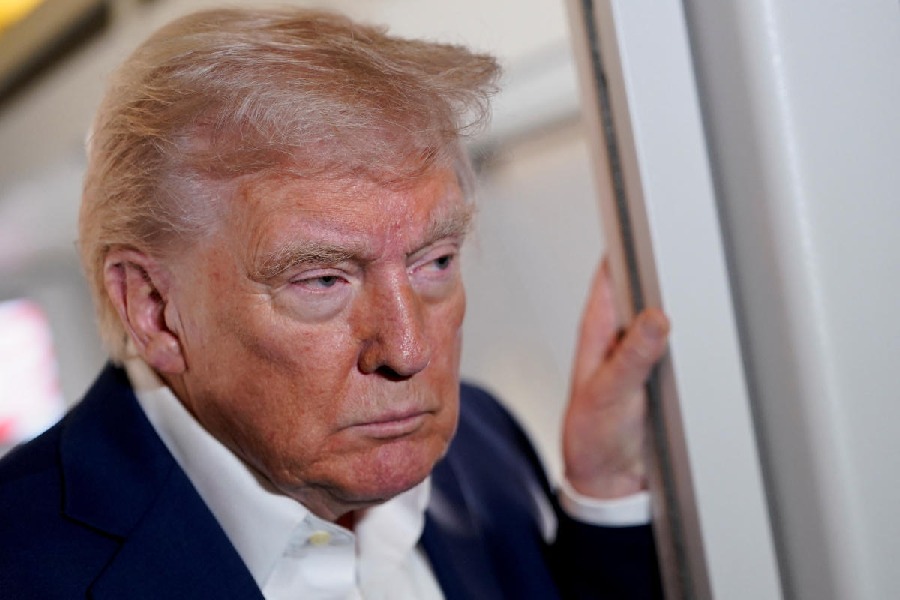Eight years after pulling the United States of America out of the Iran nuclear deal that his predecessor had brokered, Donald Trump is now trying to renegotiate that agreement. The US president claims Washington is engaging in direct talks with Iran, a country the US does not have diplomatic ties with. Tehran insists that the dialogue is indirect. Yet what matters is that they are communicating. After one meeting in Oman, a second meeting is now being scheduled. That is a positive sign for a world that cannot afford tensions to spiral between the US and Iran at a time when Israel's war in Gaza and its bombings in Lebanon and Syria have already set the Middle East aflame. On the surface, the nuclear talks might appear surprising given some of the rhetoric from Mr Trump. He has threatened to bomb Iran if it does not agree to a deal, using, as is his style of negotiating, threats and coercion where more traditional leaders would have opted for quiet diplomacy. But Mr Trump has also sent important signals that suggest that he is serious about an agreement which, if concluded, could cement the reputation he so craves, that of a peacemaker.
The red line that Mr Trump has articulated for a deal, that Iran must not get a nuclear bomb, is one that Tehran can accept and one that the US can rally the world around. Iran, after all, has maintained that its nuclear programme is entirely of a civilian nature. By not setting unachievable demands from the outset, Mr Trump has created space for an agreement that is mutually acceptable. Mr Trump has also gone ahead with the talks despite knowing that Israel is opposed to any nuclear agreement with Iran. In fact, Mr Trump has spoken of the negotiations while the Israeli prime minister, Benjamin Netanyahu, who has long tried to sabotage any diplomacy between the US and Iran, was with him in the White House. Finally, Mr Trump's unmatched pro-Israel credentials and the history of hawkish positions on Iran make him more immune than any American leader in decades from criticism over a dialogue with Tehran. To be sure, these are early days, and few would bet yet on success in these talks. But Mr Trump has repeatedly shown the ability to surprise, flipping his positions when no one expects him to. If he can stitch together an Iran agreement, that would be the art of the deal.










